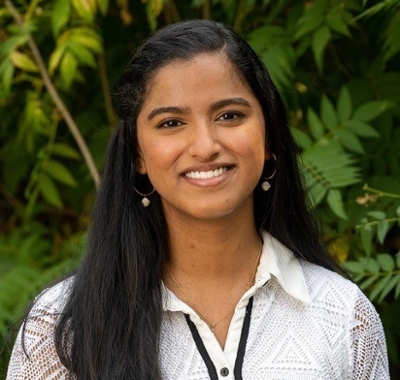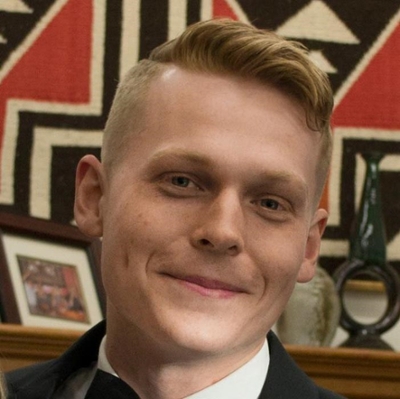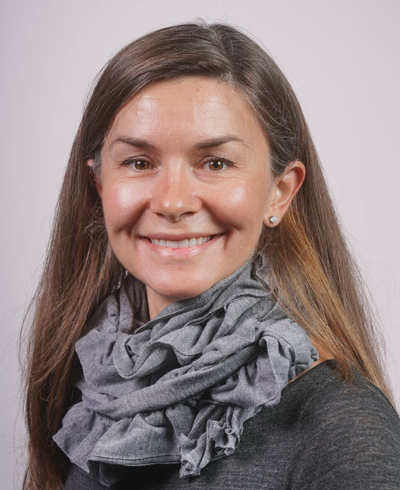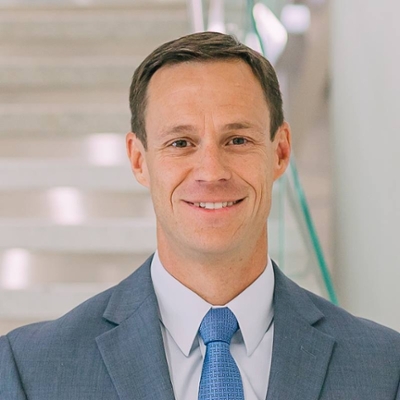Voices of U of U Health
Preparing Trainees to Keep Populations Healthy
 As an immigrant who moved to the U.S. with my family, I understood how seemingly non-medical factors like immigration status, access to transportation, and living situation can affect a person’s health. Volunteering in a hospital maternal newborn care unit further opened my eyes to how health outcomes in our state are impacted by where people live. The Population Health Scholars Program is providing me with invaluable financial support for medical school while training me to become a physician who can advocate for expansion of quality health care access for underserved patients.
As an immigrant who moved to the U.S. with my family, I understood how seemingly non-medical factors like immigration status, access to transportation, and living situation can affect a person’s health. Volunteering in a hospital maternal newborn care unit further opened my eyes to how health outcomes in our state are impacted by where people live. The Population Health Scholars Program is providing me with invaluable financial support for medical school while training me to become a physician who can advocate for expansion of quality health care access for underserved patients.
—Merry Joseph, MS1
Merry is one of 11 students from the incoming Class of 2025 at the Spencer Fox Eccles School of Medicine at the University of Utah selected to join the first cohort of the Intermountain Healthcare University of Utah Population Health Scholars Program. The program represents a new partnership between Intermountain and U of U Health that seeks to broaden the traditional medical school experience. Trainees receive specialized training in preventative care and population health concepts that focus on keeping populations as healthy as possible, rather than just treating people when they are sick.
A Natural Partnership
Intermountain and U of U Health have a long history of successful collaboration. We share a commitment to the health of our communities. As part of that commitment, we invest in educating and developing the next generation of health care providers who will keep our communities healthy. Together, we have trained countless medical students, residents, and fellows at our various facilities. Some of these trainees have gone on to practice at Intermountain or the U. Some practice at both.
Uniting to instill values and vision around population health at the earliest stage of medical school was a natural next step for both of our organizations. Intermountain provides care to a large percentage of people in our region. The U’s medical school was already invested in population health education, having started the Population Health Pathway Program in 2017. Many U of U Health faculty are actively engaged in clinical practice, education, and research in this area. And population health is a priority in the school’s efforts to reimagine medical education.
Experiental Learning, Mentorship, and Job Placement
Population health scholars receive a broader view of health care as they benefit from the best of what both organizations have to offer—rigorous academic training from the U, with real-world application from the two largest health care providers in the region. All the while, Intermountain is providing financial support by covering 50 percent of tuition expenses for every student accepted into the program.
Population health scholars participate in population health curriculum and experiential learning opportunities as part of the Population Health Pathway. Additionally, each student is paired with a physician mentor from Intermountain. This allows them to link what they learn about population health science with clinical practice. The mentor works with them for all four years of medical school. Mentorship continues during residency training.
Trainees are encouraged to pursue a population health specialty: family medicine, pediatrics, general surgery, obstetrics and gynecology, or internal medicine. After residency, program scholars are offered a position with Intermountain Healthcare, where they practice and implement their knowledge of population health, ensuring improved health outcomes for patients.
Population Health Mindset

While serving a medical mission in Nicaragua, I worked with older patient populations receiving medical attention for the first time in their lives. Knowing there are people without access to quality health care drives me to do what I can to help those who need it most. It’s motivating to be part of such a highly qualified network of peers who want to impact health on a larger scale. They inspire me to do and be my best. It’s also reassuring to know I have a job offer waiting for me. That’s one less thing to worry about so I can stay focused on the rural communities I want to serve as a primary care physician.
—Seth Biehn, MS1
In creating the first cohort, we intentionally selected students like Seth who demonstrate an authentic and intuitive population health mindset. In addition to the usual medical school training, students receive focused training in population health—a “keep you healthy” perspective.
For so long, medicine has focused on fixing what’s wrong with a patient. While that remains critically important, we have not had an across-the-board focus on population health and its role in our decisions, policies, and what we advocate for in medicine. As students learn the science and the practice of population health, they will be prepared to be leaders in this area.
Greater Access and Outcomes
The Population Health Scholars Program aims to improve health care delivery with an entire population in mind, not just those who have historically had access to good health care.
Eleven students were selected to participate in the first cohort. But by year three, we plan to select 25 students annually.
As this first cohort of students complete their training and go into practice, we’re going to see rural and other underserved communities receive greater access to the care they need. These physicians will influence health care policy and how we decide where to deploy resources. They will also create better outcomes and lower costs in communities where inequities have historically existed.
This is an exciting leap forward for Intermountain, U of U Health, our students, and perhaps most importantly, the communities we serve.

